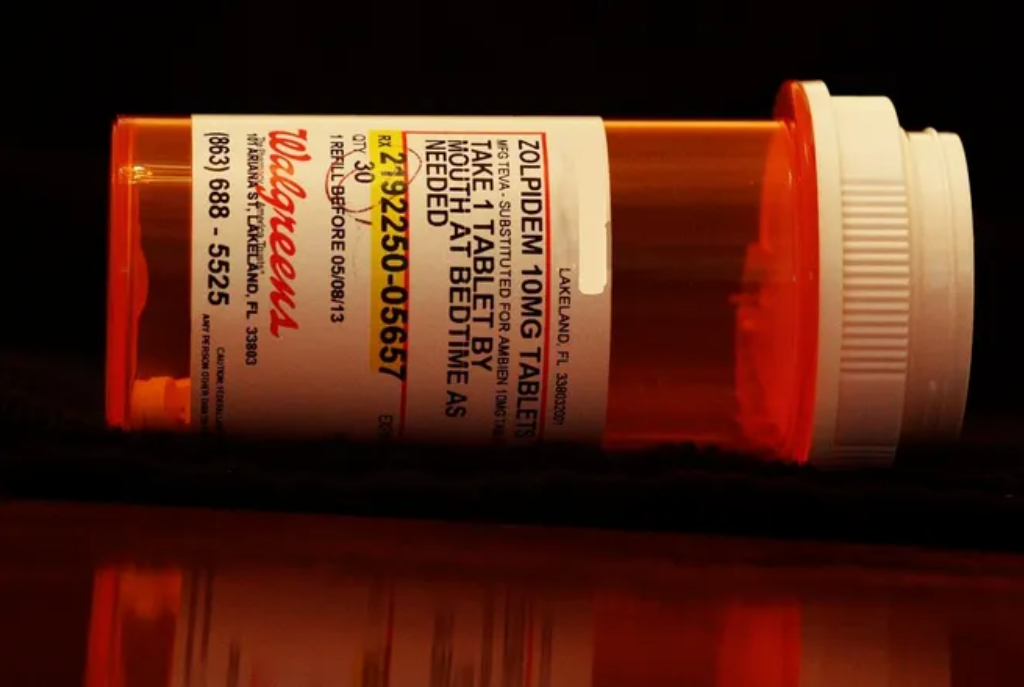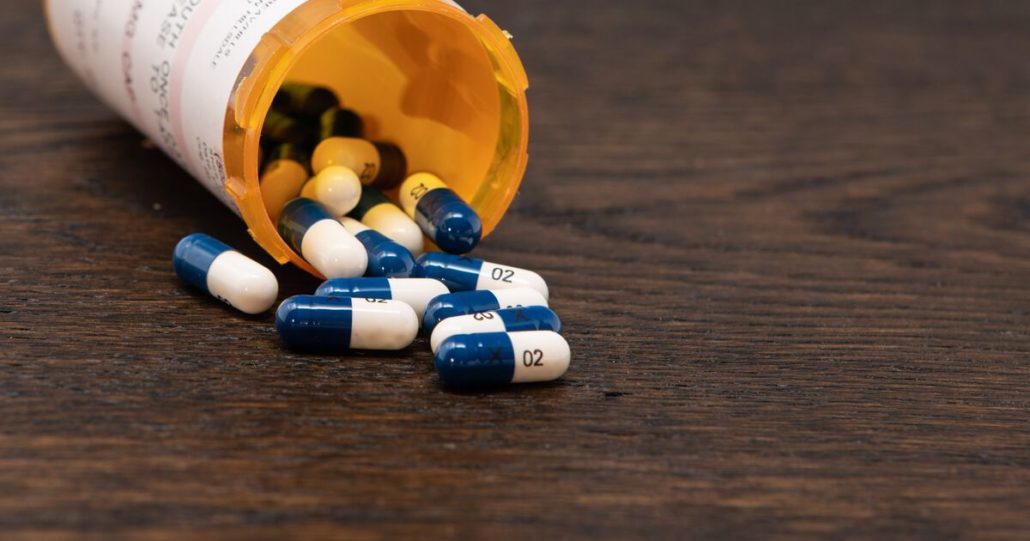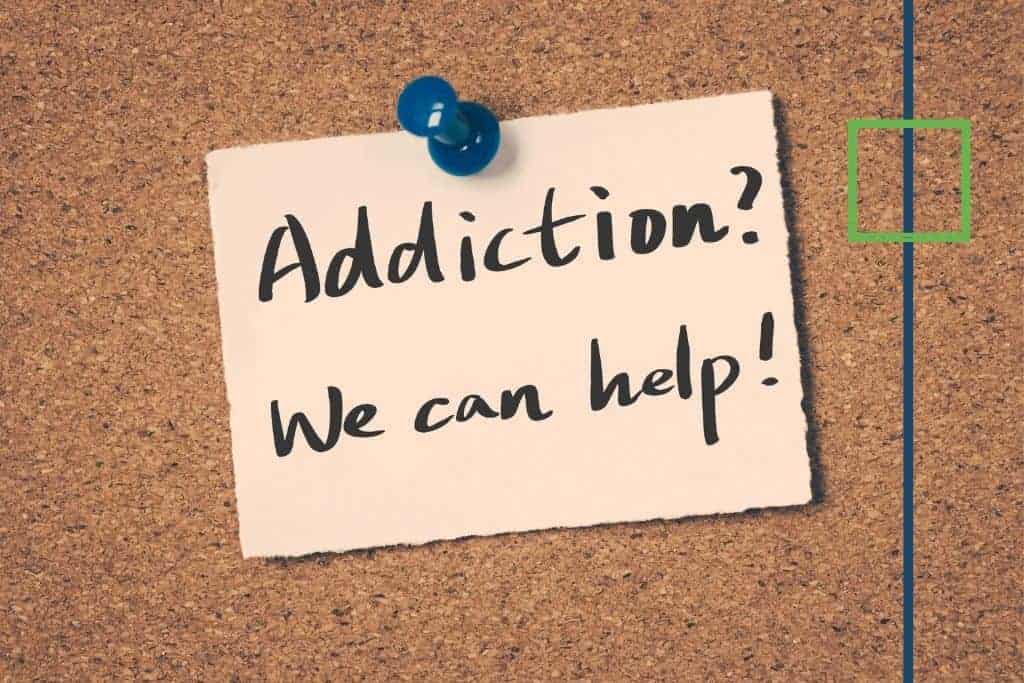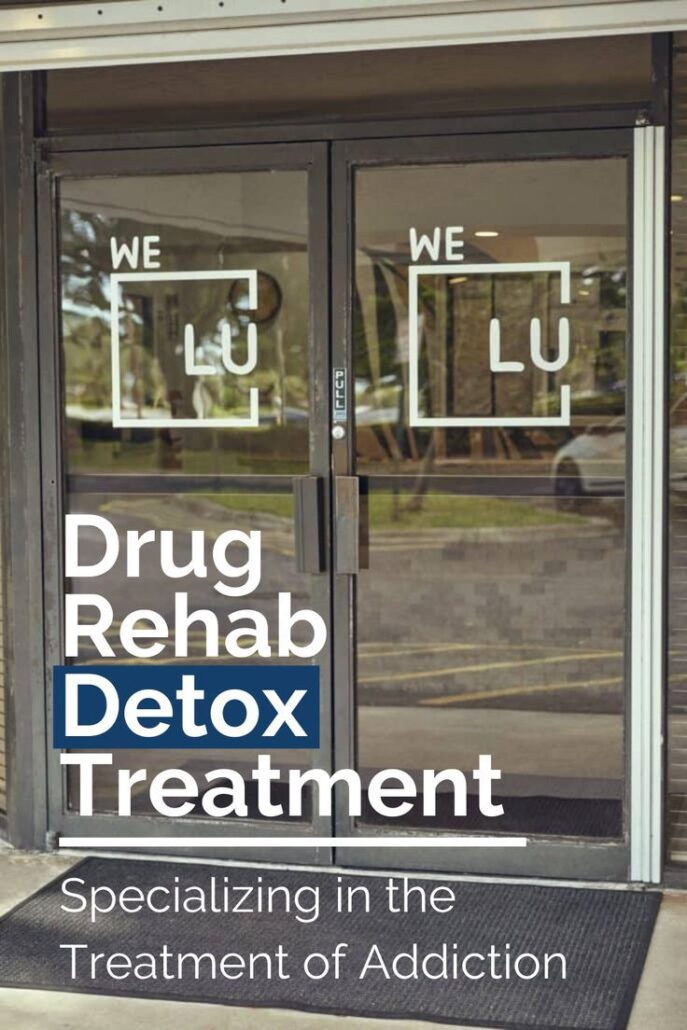Is Ambien Addictive?
The potential for addiction to Ambien will be discussed in depth in this article, along with the warning signals of overuse, the far-reaching effects of abuse, and the possible avenues to recovery. Gaining insights into these crucial features is essential for supporting the safe and responsible use of this medicine, whether you are a healthcare professional, someone prescribed Ambien, or a worried friend or family member.
Struggling with Ambien addiction? Join numerous individuals who have found support in We Level Up for gabapentin addiction treatment. Contact us 24/7 for confidential assistance. Our addiction professionals are here to guide you on your recovery journey.
What Is Ambien (Zolpidem)?
Ambien, or zolpidem in its generic form, is a sedative-hypnotic prescribed by doctors. Insomnia, a common sleep disorder marked by trouble falling or staying asleep, is the most prevalent indication for its use. Ambien is well-known for its sedative effects, which help people fall asleep and stay asleep for longer and with higher quality.
The primary neurotransmitter that Ambien acts on is gamma-aminobutyric acid (GABA). The inhibitory effects of the neurotransmitter GABA are well-known. The sleep-inducing effects of Ambien come from an amplified response to GABA, which decreases neural activity in the brain and increases relaxation.
Sublingual tablets, extended-release pills, and immediate-release tablets are all available for Ambien. Individual sleep habits and the advice of a healthcare professional should guide the formulation selection process.
The prompt dispersal Ambien helps people who have trouble getting sleep, while the extended-release form helps those who have trouble remaining asleep. Tablets that dissolve swiftly beneath the tongue might induce sleep quickly.
Ambien Addiction
Ambien, a medication prescribed to address insomnia and sleep-related disorders, has garnered attention for its potential to lead to addiction when misused. Ambien addiction is a complex issue that requires a comprehensive understanding of its nature, causes, signs, and steps to recovery.
Causes of Ambien Addiction:
- Misuse and Overuse: One of the primary causes of Ambien addiction is the misuse or overuse of the medication. Some individuals may take Ambien in higher doses than prescribed or for more extended periods than recommended.
- Psychological Dependence: Ambien can create a sense of psychological dependence, where individuals believe they need the medication to sleep, even when it is no longer medically necessary.
- Tolerance Development: Over time, some individuals may build tolerance to Ambien, requiring higher doses to achieve the same sleep-inducing effects, which can increase the risk of addiction.
Consequences of Ambien Addiction: Ambien addiction can lead to severe consequences:
- Physical and Mental Health Issues: Ambien misuse can result in physical and mental health problems, including memory issues, mood disturbances, and impaired cognitive function.
- Relationship Strain: Addiction can strain relationships with family, friends, and colleagues due to changes in behavior and priorities.
- Legal and Financial Problems: Individuals addicted to Ambien may engage in risky behaviors to obtain the drug, potentially leading to legal issues and financial instability.

Skip To:
Learn More:
- Is Ambien a Narcotic? Ambien Risks and Addiction Potential. Ambien Narcotics. Why is Ambien a Narcotic?
- Is Gabapentin a Narcotic or a Controlled Substance? Gabapentin Narcotic Class. Gabapentin Narcotics.
- Is Tramadol a Narcotic? Is Tramadol a Narcotics Class? Is Tramadol a Narcotic or Not? Is Tramadol an Opioid? Signs of Tramadol Opioid Use Disorder & Narcotic Drug Treatment Center NJ
- Is Heroin a Narcotic?
- Narcotics Anonymous Support Groups
Uncover addiction counseling that works. Discover professional help from We Level Up’s addiction and mental health therapists. Start getting support with a free call to our addiction hotline.
Get Help. Get Better. Get Your Life Back.
Searching for Accredited Drug & Alcohol Rehab Centers Near You? Or Mental Health Support?
Even if you have failed previously, relapsed, or are in a difficult crisis, we stand ready to support you. Our trusted behavioral health specialists will not give up on you. Call us when you feel ready or want someone to speak to about therapy alternatives to change your life. Even if we cannot assist you, we will lead you wherever you can get support. There is no obligation. Call our hotline today.
FREE Addiction Hotline – Call 24/7Ambien Addiction Facts
Ambien Classification
Ambien, also known by its generic name Zolpidem, is a sedative-hypnotic medication primarily used to treat insomnia. It is classified as a non-benzodiazepine sleep aid.
Ambien Uses
Ambien is prescribed to help individuals with sleep disorders, particularly those with difficulty falling asleep. It is a short-acting medication that can assist in initiating sleep.
How Ambien Works
Ambien affects certain neurotransmitters in the brain, promoting relaxation and drowsiness. It shortens the time it takes to fall asleep and extends sleep duration.
Is Ambien a Narcotic?
No, Ambien is not classified as a narcotic. It belongs to a different drug class known as sedative-hypnotics, which have a different mechanism of action.
Is Ambien Addicting? Ambien Addiction Potential
While Ambien is not a narcotic, it can be habit-forming if not prescribed. It’s essential to follow your doctor’s recommendations to avoid potential dependence.
Ambien Addiction Side Effects
Common side effects of Ambien may include drowsiness, dizziness, headache, and changes in taste. More severe side effects are rare but possible.
Dosage and Administration
Ambien should be taken precisely as prescribed by your healthcare provider. It is typically recommended for short-term use, usually no more than 7-10 days.
Safety Precautions
Ambien should not be combined with alcohol or other drugs that can cause drowsiness. It should only be used by the person prescribed it and under medical supervision.
Withdrawal and Discontinuation
To minimize potential withdrawal symptoms, discontinuing Ambien should be done gradually under a doctor’s guidance.
Consult Your Healthcare Provider
Consult your healthcare provider for personalized guidance if you have concerns about Ambien, its use, or potential side effects.
Ambien Narcotic Statistics
In 2013, Zolpidem (Ambien) was widely prescribed for insomnia, ranking as the fourth most prescribed psychiatric drug. It acts on GABA receptors but has limitations like short-term use, lower doses for older adults and women due to higher blood concentrations, and increased risks when combined with other CNS-depressant drugs. A study analyzed its usage patterns about these precautions using national prescription medication data.
5 mg/day
5 mg/day is recommended for those 65 years or older
Source:
45% to 50%
Women are advised to start with a lower dose due to 45% to 50% higher blood concentrations.
Source:
4th
Zolpidem (Ambien) was the fourth most prescribed psychiatric drug in 2013.
Source:
Risks of Being Addicted to Ambien
While Ambien isn’t a narcotic, it’s not without Ambien addiction risks. Ambien can significantly lead to dependence and addiction when misused or for an extended period. Some potential risks associated with Ambien addiction include:
- Dependence: Continued use of Ambien can lead to physical and psychological dependence, where individuals may feel unable to sleep without the medication.
- Tolerance: Over time, some users may develop a tolerance to Ambien, requiring higher doses to achieve the same sleep-inducing effects.
- Withdrawal: Discontinuing Ambien after regular use can result in withdrawal symptoms, including rebound insomnia, anxiety, and irritability.
- Misuse and Abuse: Some individuals misuse Ambien by taking higher doses or using it for non-medical purposes to achieve a euphoric effect.
- Complex Sleep Behaviors: Ambien has been associated with incidents of sleepwalking, sleep-driving, and other complex sleep-related behaviors.

Get Your Life Back
Find Hope & Recovery. Get Safe Comfortable Detox, Addiction Rehab & Mental Health Dual Diagnosis High-Quality Care at the We Level Up Treatment Centers Network.
Hotline (877) 378-4154Conquering Ambien Addiction: Discover the Support You Seek
Withdrawing from Ambien can be an arduous journey to navigate alone. Numerous individuals face relapses during withdrawal as they try to ease symptoms and cravings. Yet, you can effectively manage withdrawal symptoms and achieve recovery through detox, rehab therapy, and a strong support network at We Level Up treatment centers. Contact a We Level Up treatment expert today if you need help on your rehab path. Your call is both free and confidential.

Is Ambien Addictive or Habit Forming
Ambien (zolpidem) can be habit-forming and has the potential for addiction when misused or taken in ways other than prescribed by a healthcare professional. It is not uncommon for individuals to develop a psychological dependence on Ambien, mainly if they rely on the medication for sleep regularly.
- Short-Term Use: When taken as prescribed for a short period, Ambien is generally considered safe and not likely to lead to addiction. It is effective in helping individuals initiate sleep and can improve sleep quality.
To minimize the risk of addiction and habit formation, it’s crucial to use Ambien strictly as prescribed by a healthcare provider and for the recommended duration. It should generally be reserved for short-term use as a solution to acute sleep issues rather than a long-term solution. If you or someone you know is concerned about Ambien use or its potential for habit formation, consult a healthcare professional for guidance and alternatives to promote healthy sleep patterns and overall well-being.
First-class Facilities & Amenities
World-class High-Quality Addiction & Mental Health Rehabilitation Treatment
Rehab Centers TourRenowned Addiction Centers. Serene Private Facilities. Inpatient rehab programs vary.
Addiction Helpline (877) 378-4154Proven recovery success experience, backed by a Team w/ History of:
15+
Years of Unified Experience
100s
5-Star Reviews Across Our Centers
10K
Recovery Success Stories Across Our Network
- Low Patient to Therapist Ratio
- Onsite Medical Detox Center
- Comprehensive Dual-Diagnosis Treatment
- Complimentary Family & Alumni Programs
- Coaching, Recovery & Personal Development Events
Ambien Abuse
Ambien, a prescription medication primarily prescribed for insomnia, is not immune to misuse and abuse. The sedative effects that make it effective in promoting sleep can also lead to its recreational use. Ambien abuse involves taking the medication in higher doses or for longer durations than prescribed, often to achieve a sense of euphoria or relaxation.
Common signs of Ambien abuse include:
- Taking higher doses: Individuals may take more Ambien than prescribed, hoping to intensify the sedative effects.
- Long-term use: Using Ambien for extended periods beyond the recommended duration can indicate a problem.
- Craving: Feeling a strong desire or craving for Ambien, even when it’s not necessary for sleep.
- Doctor shopping: Visiting multiple doctors to obtain additional prescriptions for Ambien.
- Social and occupational disruption: Ambien abuse can interfere with daily life, affecting work, relationships, and social activities.
- Withdrawal symptoms: Experiencing discomfort or anxiety when attempting to reduce Ambien use.
- Failed attempts to quit: Repeated efforts to stop using Ambien without success.

Why is Ambien so Addictive?
Ambien can be addictive for several reasons:
- Chemical Action: Ambien affects the brain’s neurotransmitters, enhancing the effects of gamma-aminobutyric acid (GABA), which induces relaxation and sleepiness. This can create a sense of euphoria in some users, contributing to addiction potential.
- Tolerance Development: Individuals may tolerate Ambien over time, requiring higher doses to achieve the same sleep-inducing effects. This can lead to escalating use and addiction.
- Psychological Dependence: Ambien can create psychological dependence, where individuals believe they need the medication to sleep, even when it is no longer medically necessary.
- Misuse and Overuse: Taking Ambien in higher doses or for more extended periods than prescribed increases the risk of addiction.
- Availability and Accessibility: Ambien’s widespread availability and prescription status can contribute to misuse and the development of addiction.
World-class, Accredited, 5-Star Reviewed, Effective Addiction & Mental Health Programs. Complete Behavioral Health Inpatient Rehab, Detox plus Co-occuring Disorders Therapy.
CALL (877) 378-4154End the Addiction Pain. End the Emotional Rollercoaster. Get Your Life Back. Start Drug, Alcohol & Dual Diagnosis Mental Health Treatment Now. Get Free No-obligation Guidance by Substance Abuse Specialists Who Understand Addiction & Mental Health Recovery & Know How to Help.

Ambien Addiction Treatment
Ambien addiction can be a complex and challenging journey, and we’re here to provide comprehensive support.
Our Services Include:
- Dual Diagnosis Treatment: Addressing co-occurring mental health issues alongside addiction, our integrated care approach promotes lasting recovery.
- Medical Detox: Ensuring a safe and comfortable Ambien withdrawal under expert supervision.
- Individualized Therapy: Exploring addiction’s root causes and developing personalized recovery strategies through one-on-one counseling.
- Group Therapy: Building community and sharing experiences in supportive group sessions.
- Holistic Approaches: Incorporating yoga, meditation, and art therapy to address physical, emotional, and spiritual aspects of recovery.
- Relapse Prevention: Equipping individuals with tools to identify triggers and maintain sobriety.
Our commitment at We Level Up is helping individuals overcome Ambien addiction for lasting recovery. Our evidence-based treatments, compassionate staff, and personalized care plans support each person’s unique journey to sobriety. If you or someone you know is struggling with Ambien addiction, reach out today. We provide guidance and support, promoting mental health and well-being.
We Level Up Treatment Center is committed to guiding you toward lasting recovery from Ambien Addiction and co-occurring conditions. Our multidisciplinary team is here to provide unwavering support, guidance, and personalized care every step of the way. Let’s embark on this transformative journey together.
Experience Transformative Recovery at the We Level Up Treatment Center.
See our authentic success stories. Get inspired. Get the help you deserve.



Start a New Life
Begin with a free call to an addiction & behavioral health treatment advisor. Learn more about our dual-diagnosis programs. The We Level Up treatment center network delivers various recovery programs at each treatment facility. Call to learn more.
- Personalized Care
- Caring Accountable Staff
- World-class Amenities
- Licensed & Accredited
- Renowned w/ 5-Star Reviews
We’ll Call You
Most Popular Is Ambien a Narcotic FAQ
-
Can you get addicted to Ambien?
Yes, it’s possible to become addicted to Ambien, especially when misused or taken for an extended period. Ambien can lead to physical and psychological dependence when used outside prescribed guidelines.
-
How long can I take Ambien before I get addicted?
The risk of addiction varies from person to person. It’s generally recommended to use Ambien for a short duration, typically a few weeks, to minimize the risk of dependency. Consult with a healthcare provider for personalized guidance.
-
How addictive is Ambien?
Ambien has the potential to be addictive, particularly when misused or taken in higher doses than prescribed. Psychological dependence can develop over time, making it essential to use the medication strictly as directed by a healthcare professional to minimize the risk of addiction.
Powerful Video Overcoming Prescription Drug Abuse
“I wanted my life back. I was a shell of a person. I wanted to be trusted; I wanted relationships back that I lost, mainly my children and family. It started innocent enough, I got into a car accident, and then I got sucked into the whole, you know, medication issue with the pills. Before I knew it, I was in a cloud. I was sucked in by addiction, and with my mind, I kept thinking it was OK because a doctor was prescribing this for me, a doctor was giving me this, a doctor was giving me that.
So, I didn’t think I was doing anything wrong. Level Up supports my family and my relationships with my family, and they’ve helped me grow as a person. When I first started there, I was so intimidated and scared, you know? But, they’ve taught me, they’ve taught me how to come into my own. And then, you know, when I get the call from my twenty-one-year-old daughter in the middle of the day, to say ‘I love you, Mom.’ that’s amazing.”
Jen’s Addiction Recovery Testimonial
Search Drug & Alcohol Rehab / Detox & Mental Health Topics & Resources
Sources
- U.S. Food and Drug Administration. (2022). Highlights of prescribing information. Learn More: Ambien is a narcotic? Is Ambien a Narcotic?
- Drug Enforcement Administration. (2018). Drug scheduling. Learn More: Is Ambien a Narcotic?
- U.S. Department of Justice/Drug Enforcement Administration. (2020). Drugs of abuse: A DEA resource guide. Learn More: Is Ambien a Narcotic? is ambien highly addictive?
- Licata SC, Mashhoon Y, Maclean RR, Lukas SE. (2011). Modest abuse-related subjective effects of zolpidem in drug-naive volunteers. Behav Pharmacol, 22(2),160-6. Learn More: Is Ambien a Narcotic? ambien is it a narcotic
- Moore TJ, Mattison DR. (2018). Assessment of Patterns of Potentially Unsafe Use of Zolpidem. JAMA Intern Med, 178(9),1275–1277. Learn More: Is Ambien a Narcotic?
- U.S. Food and Drug Administration. (2019). Taking Z-drugs for Insomnia? Know the Risks. Learn More: Is Ambien a Narcotic?
- U.S. Food and Drug Administration. (2017). FDA Drug Safety Communication: FDA approves new label changes and dosing for zolpidem products and a recommendation to avoid driving the day after using Ambien CR. Learn More: Is Ambien a Narcotic?
- U.S. Food and Drug Administration. (2018). Questions and Answers: Risk of next-morning impairment after use of insomnia drugs; FDA requires lower recommended doses for certain drugs containing zolpidem (Ambien, Ambien CR, Edluar, and Zolpimist). Learn More: Is Ambien a Narcotic?
- Matheson E, Hainer BL. (2017). Insomnia: Pharmacologic Therapy. Am Fam Physician, 96(1), 29-35.
- Substance Abuse and Mental Health Services Administration. (2021). Results from the 2020 National Survey on Drug Use and Health: Detailed Tables. Learn More: Is Ambien a Narcotic?
- Haji Seyed Javadi, S. A., Hajiali, F., & Nassiri-Asl, M. (2014). Zolpidem dependency and withdrawal seizure: a case report study. Iranian Red Crescent medical journal, 16(11), e19926.
- National Institute on Drug Abuse. (2018). Prescription CNS Depressants DrugFacts.